Jason Williams
This user hasn't shared any biographical information
Posts by Jason Williams
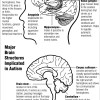
Multiple Paths to Autism
Apr 10th
There was a great deal of excitement last week as intriguing findings published in Nature yield clues into the mystery of autism. Autism, or more correctly put Autism Spectrum Disorders (ASD) are defects in neural development that manifest themselves early in childhood as affected children have difficulties in socialization and language skills. Like any childhood disease autism is unimaginably frustrating for the millions of parents and relatives that have to find the best way to cope with a child who will have unexpected needs. Even more frustrating perhaps is the unanswered questions surrounding the cause of the disease and the More >
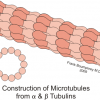
A Microtubule Model for Memory
Mar 20th
“Neurons that fire together, wire together.” This adage is a helpful reminder to students who take a course on memory and the brain. This rhyme captures our understanding that neurons have a self-reinforcing capability that links them, and that this capacity has some relation with how memory in the brain works. It makes sense that if the same groups of neurons are involved in processing some stimulus, strong and stable connections rather than weak and transient would be preferable. We use similar optimizations when we place people on a speed-dial list, bookmark a website, or create a playlist of songs.
In More >
New Hope for Alzheimer’s Sufferers
Feb 13th
This article in science is good news for suffers of Alzheimer’s. A group out of Case Western University reports that the drug Bexarotene can reverse the symptoms of Alzheimer’s in mouse models of the disease.
More importantly, Bexarotene is already in use in human patients, making it easier to determine if the drug will have similar benefits for Alzheimer’s patients.
According to Alzheimer’s Foundation statistics, 5.4 million Americans suffer from this debilitating disease. Alzheimer’s devastates patient’s cognitive abilities, with the most notable symptom being profound and worsening memory loss. While some amount of memory loss is to be expected with old age, Alzheimer’s patients More >

Origin of ALS discovered
Oct 24th
ALS (amyotrophic lateral schlerosis, a.k.a. Lou Gehrig’s disease) is a devastating disease which kills motor neurons, leaving patients paralyzed and unable to function. Although patients remain aware and for the most part mentally undamaged, most patients die within 2-3 of onset as the disease progressively leaves them trapped in a body that is unable to function. As motor neurons die, the person’s muscles weaken and atrophy, and patients will eventually develop respiratory difficulties leading to death.
Unfortunately very little is known about how this disease develops, so a new breakthrough published in Neuron (and by a second group also in Neuron) is More >
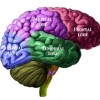
Beauty may be only skin deep, but so are brains.
Jul 18th
In an exciting paper by from a group from Stanford, researcher Andrew Yoo and colleagues have demonstrated that fibroblasts can be transformed into neurons using RNAi to coax these skin cells into becoming functional neurons.
Different cell type (skin cells, neurons, osteoblasts, etc.) start out from less specialized cells, called stem cells. What a cell will become (its characteristics and functions) is also known as the cell’s “fate.” It may seem odd that seemingly simple skin cells can be transformed into cells that make up the thinking brain. However, all cells have a common set of DNA instructions, and it is More >
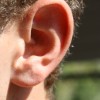
Are you listening to me?
Jun 20th
Many of us have probably been accused of not paying attention to what someone is saying to us. I’ve also found it odd (since I can’t recall it happening to me) when I’ve approached someone engaged in a task, and they genuinely seemed not to notice I was there.
In a study published in Attention, Perception, & Psychophysics, a group of researchers have been examining a condition called “Inattentional deafness.” The group from University College London examined study participants’ ability to detect a sound while focusing intently on a task.
When subjects did a simple version of the computer based task, most recalled More >
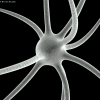
A New Neurotransmitter (D-Aspartic Acid)
May 13th
In 2011, you would think that neuroscience is focused on discovering answers to high-level questions about the brain; how consciousness arises, how emotions work, what is autism, etc. Although progress is being made in all of those areas, it seems that we still have a great deal to learn about even the most basic components of the brain.
Recently, a group from Naples reports that D-Aspartic acid functions as a neurotransmitter in both a mammal the rats (Rattus norvegicus), and a mollusk (Loligo vulgaris). D-Aspartic acid (D-Asp) has been known to scientists for well over a century. However, its role as a More >
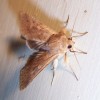
Learning from Moths
Mar 15th
A student of mine seemed disappointed yesterday when I handed her a paper to read about Butterflies. I wanted to give an example of a nicely written scientific paper that was low on technicality and covered many of the same topics and techniques we had already engaged in class.
The response I got was less than enthusiastic. ‘But what’s the point of studying butterflies? Who would fund that?’ These questions are in reasonable complaints on the mind of many, non-scientists and scientists alike. A recent interview with the astronomer Neil deGrasse Tyson touches on the question of whether the exclusive purpose of More >
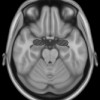
Frenemies?
Feb 4th
In Nature Neuroscience this February, Bickart et.al. demonstrate a correlation between the number of friends you have and the size of your amygdala . Specifically, they showed that the volume of the amygdala is positively correlated with the size and complexity of a person’s social network.
As stated on the G2C website, the amygdala is involved in processing emotions, and fear–learning. Concerning the amygdala and fear, the flight-or-flight response is one of the most well known examples. So do people with more “frenemies” have larger amygdalae to help them survive inevitable back stabbing?
According to this paper, while there was a correlation between large More >

